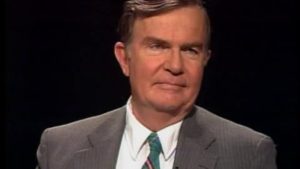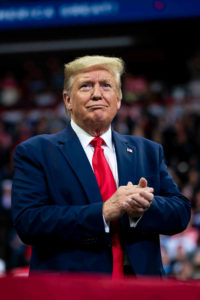


Friday was Canada’s 155th year of existence as a sovereign state and tomorrow the United States of America celebrates “independence day”- it’s 246th.
James David Barber’s classic The Presidential Character Predicting Performance in the White House first published in 1972 and updated in 1977 has been sitting on my bookshelf for decades unread. Today I pulled it out.
The preface quoted below- written in American political science code- appealed to my accumulating concerns about our current political leaders but also apply as well to corporate and institutional leadership. The preface written three years before actor Ronald Reagan captured the White House is a prescient warning about the loss of meaning, the shallowness of our political and corporate class, and the public’s perception of politics as entertainment and not an avocation.
Preface to the second edition- 1977
As we stroll around the corner of America’s two-hundredth year, we see 1984 marching towards us. To me, the most frightening theme in Orwell’s prophecy- more frightening than the less subtle tyrannies he foresees- is the breakdown of meaning, the ultimate reading of the bonds that are metaphors to our experience. There is more to this than the traditional totalitarian demand for allegiance to absurdities such as “War is Peace” and “Freedom is Slavery.” Even as the enslaved ones show such contradictions,, some nerve of reason in them senses the emptiness and the irrelevance of the incantations. But meaning can get lost in less exotic, more important ways, some of which are directly relevant to the mundane business of predicting performance in the White House.
If enough people become skeptical enough that the Presidency is relevant to their lives and fortunes, then our elections may deteriorate into symbol- fests, our inaugurations into mere ceremonies. There is still a solemnity inside the excitement of an English coronation, not only because heroic memories are involved but also because the monarch may- really-someday- act significantly in politics, for instance to forestall an English Big Brother when all the other forestallers have failed. Take away confidence in the President’s power and we the people may turn him into an entertainer, who, however seriously he may take himself, need not furrow our brows with real-world calculations. Then, it is logical to suppose, our processes of nomination and election, being oriented toward a political nothingness, will be freed of reason’s grayness, freed for the bright paints of a politics of the moment through which are miscellaneous and disparate needs and wants and fears can find release. Then, the Presidential campaign becomes an extended political holiday -a trip to the nation’s psychological beaches and mountains- a “suspension of disbelief” analogous to the restful anticipation one feels just as the lights go down and the curtain goes up in the theatre. The distinction fades between actors who play candidates or Presidents (Robert Redford, Henry Fonda) and Presidents struggling to act winningly in an essentially playful politics.
If enough people become lazy enough, candidates for the Presidency will learn to cater to the public’s low energy politics. Lazy people want a sign. Never mind your “main tendencies,” “on balance,” or life histories- what is an example, an illustration and an anecdote to sum up for us? Skip the details: what is “the bottom line?” Such citizenly lassitude encourages candidates toward a politics of gestures. Are we worried that the candidate is too high and mighty? Ah, but didn’t you see him on television, walking along in his shirtsleeves, eating a hotdog and chatting with the hard hat? Is the candidate smart enough to be President? Well, look at him, up there on stage with all those professors, wearing a cap and gown for his “honorary degree.” What about foreign affairs? Do you know, they say he speaks French? In plain and fancy ways, candidates serve their voting masters by conserving the public’s scarce attention, while gesturing appropriately, whether or not that has any connection with their political practices and purposes. Indeed, as Nixon demonstrated, gesturing can not only substitute for action, it can compensate for actions in the opposite direction.
If enough people become moralistic enough, the President-choosing process can transform itself into a national goodness contest, in which the political meanings fade out as the electoral light searches for a spotless lamb. Clearly the overwhelming immediate effect of Nixon’s impeachment was to so heighten the criterion of honesty that all other Presidential qualifications were thrown into obscurity. We are right to worry about the potential Inquisitors in our midst- those secular protesters of various tight little orthodoxies of the left and right, who, given a place of power, turn it into a platform of persecution. But there is a worry short of that, more ambiguous and that’s more dangerous: apparently raising politics to a higher moral plane making politics the central moral arena we may reduce the capacity of politics to do what it can for morals, namely set conditions that make a genuinely moral life possible. An emphasis on moral symbolism can cloud the fact that politics is one compromise, a perpetual second-best, never more than an approximation to moral perfection. The moralistic emphasis carries gesturing to posturing: a politics in which candidates will draw attention to their purity that their capability goes unexamined.